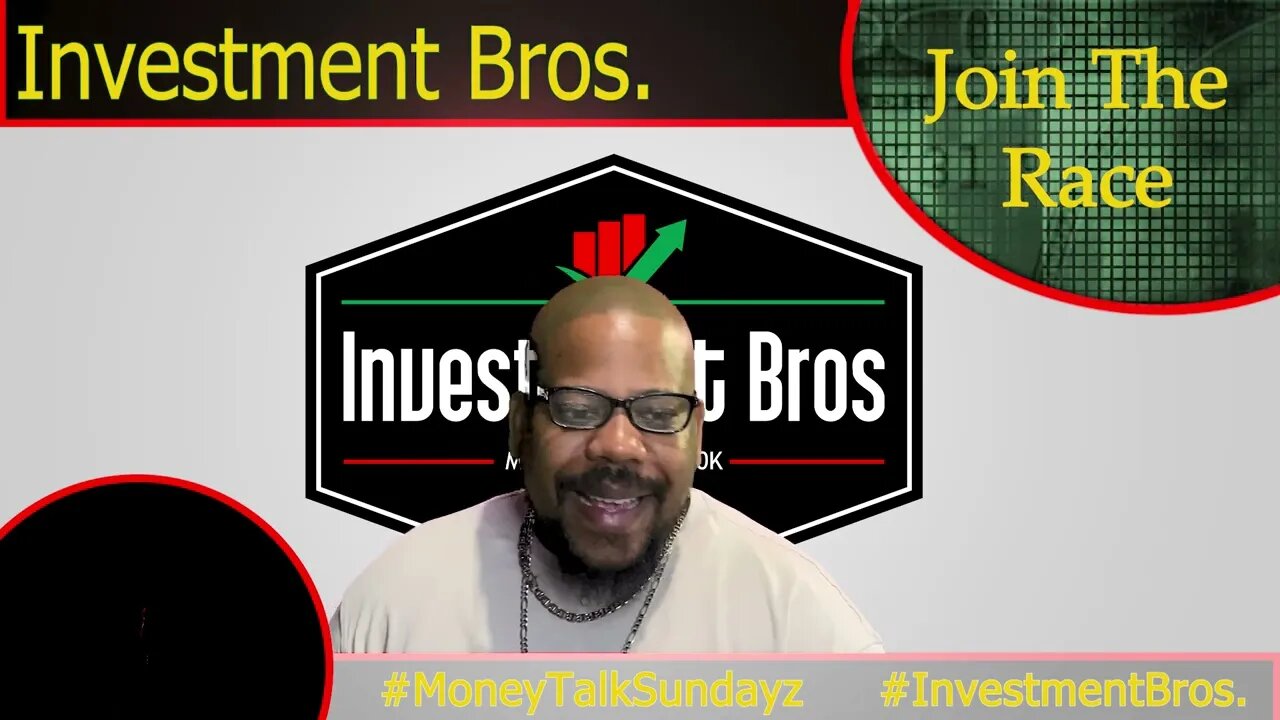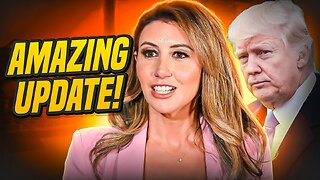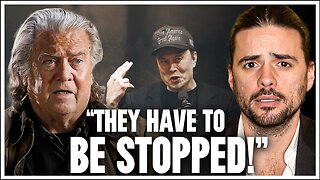Premium Only Content

Federal Reserve to Change Course on Interest Rate Hikes after Latest Jobs Report
Hello, everyone! Welcome back to The Money Talk Sundayz Podcast where we untangle the complex world of finance and economics, one thread at a time. I'm your host, Stevie Bee, and today we're discussing an important topic that has been making the headlines recently: the strong jobs market report and its effect on the Federal Reserve’s decision on raising interest rates.
Don’t forget to hit that like, share, and subscribe button. For those that heeded my call on Nvidia, congratulations. You’re in the money! Let’s move on.
Now, I know this sounds like it will be quite jargon-heavy, but don't worry! We're going to break it down together.
First, let's talk about the Federal Reserve, or the Fed, as it's often called. The Fed is the central banking system of the United States, responsible for managing the country's money supply and maintaining the stability of its financial system. One of the primary tools they use to do this is by manipulating interest rates.
Interest rates are like the price of money. When you borrow money, you pay interest; when you save money, you earn interest. The Fed can raise or lower these rates to stimulate or slow down the economy, respectively.
Now, onto the jobs market report. This is a monthly announcement released by the Bureau of Labor Statistics. It provides crucial data on the state of employment in the country, indicating things like job creation, the unemployment rate, and wage growth.
Now the million dollar question is: why would the Federal Reserve raise interest rates based on a stronger jobs market report?
Well, the relationship between the two is fundamentally about managing the health of the economy. When the jobs market report indicates high employment rates and solid job growth, it's usually a sign that the economy is doing well. More people working means more income being earned and, consequently, more spending. This increased spending fuels economic growth.
However, there's a delicate balance to be struck here. Too much economic growth too quickly can lead to inflation. Inflation is when the price of goods and services increases, eroding the purchasing power of money.
So, imagine this: the economy is humming along nicely, job growth is strong, and wages are rising. That means more people have money to spend. If the supply of goods and services doesn't keep up with this increased demand, prices will rise — that's inflation.
Now, this is where the Fed steps in with its interest rate lever. To keep inflation in check, the Fed may raise interest rates. Higher interest rates make borrowing more expensive, which can curb spending and slow down the economy. In a way, it's like tapping the brakes on an overheating engine.
So, in essence, a stronger jobs market report can signal a robust economy, but it also raises the specter of inflation. By adjusting interest rates, the Federal Reserve aims to maintain a healthy balance between economic growth and price stability.
If we remember several months ago, the Federal Reserve stated that in order to cool inflation they would need to raise interest rates, so much so to the point where millions of people would end up unemployed. A strong jobs market report is counter-productive forcing the Feds to reverse course on decreasing the amount of the interest rate as well as possibly increasing the frequency and length of increases going forward.
Now, it's important to remember that while all these dynamics are often textbook scenarios, in reality, the Fed takes into consideration a myriad of other economic indicators and global events to decide its monetary policy. A stronger jobs market report is a significant piece of the puzzle, but it's still just one piece.
That's all we have for today. I hope this gives you a clearer picture of why the Federal Reserve might raise interest rates in response to a stronger jobs market report. As always, we'll continue to keep you updated on these important financial trends and untangle the economic threads. Thank you for listening. This has been Stevie Bee for The Money Talk Sundayz Podcast, and I'm signing off."
-
 1:04:55
1:04:55
Bare Knuckle Fighting Championship
4 days agoBKFC ITALY PRESS CONFERENCE | LIVE!
37.3K4 -
 10:04
10:04
Space Ice
4 hours agoThe Movie Silent Hill Is Like Resident Evil Without The Good Parts - Worst Movie Ever
21.1K10 -
 5:49
5:49
Hannah Barron
1 day agoRedneck Euro Mount
18.3K20 -
 32:34
32:34
hickok45
9 hours agoSunday Shoot-a-Round # 268
13.9K12 -
 27:33
27:33
The Finance Hub
19 hours ago $10.43 earnedBREAKING: ALINA HABBA JUST DROPPED A MASSIVE BOMBSHELL!!!
48.5K96 -
 40:23
40:23
PMG
23 hours ago $1.11 earnedHannah Faulkner and Dr. Michael Schwartz | EXPOSING BIG PHARMA
27.3K2 -
 18:55
18:55
GBGunsRumble
21 hours agoGBGuns Range Report & Channel Update 15FEB25
19.3K2 -
 13:31:32
13:31:32
iViperKing
22 hours agoGood Times + Good Energy Ft. Whez.. #VKGFAM #RRR
105K15 -
 12:24
12:24
Winston Marshall
2 days agoWOAH! Bannon just Revealed THIS About MUSK - The Tech-Right vs MAGA Right Civil War Ramps Up
230K314 -
 7:33:46
7:33:46
Phyxicx
20 hours agoRaid & Rant with the FF14 Guild on Rumble! Halo Night just wrapped up! - Go Follow all these great guys please! - 2/15/2025
154K7